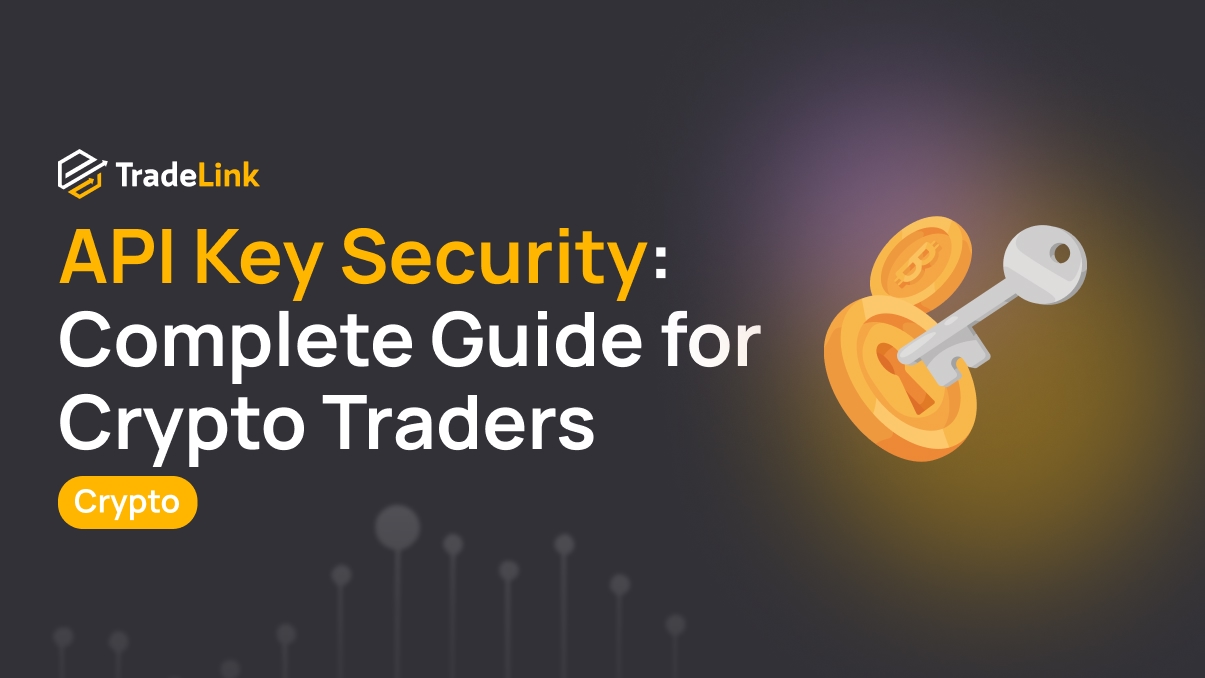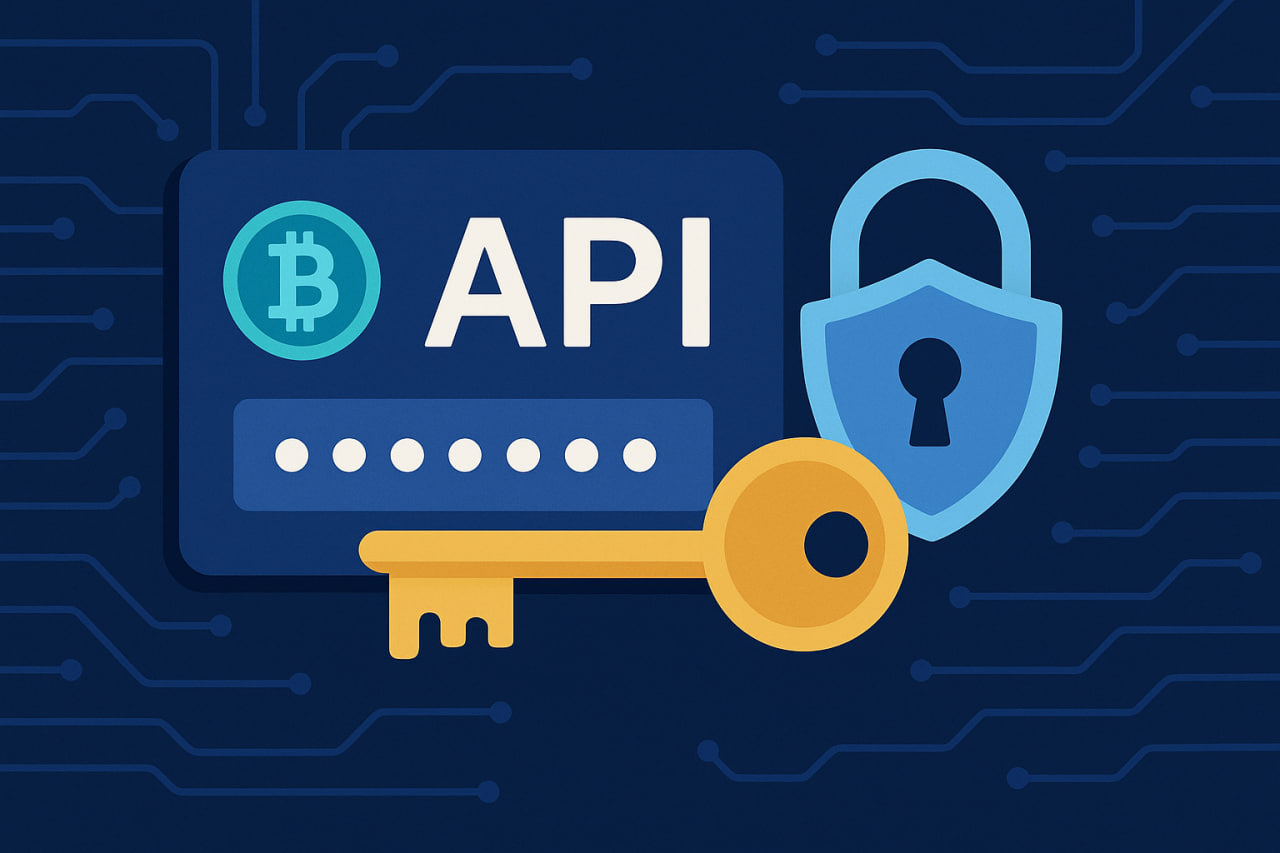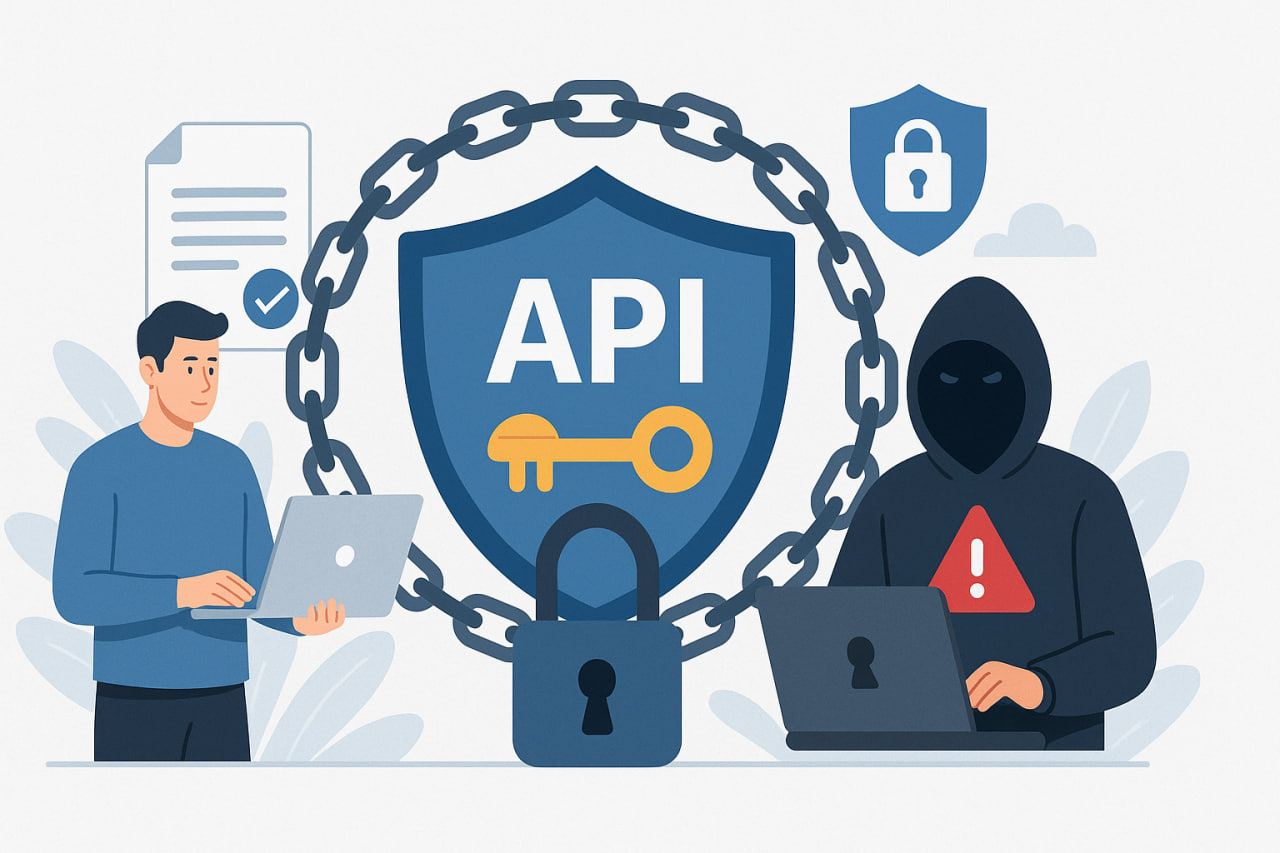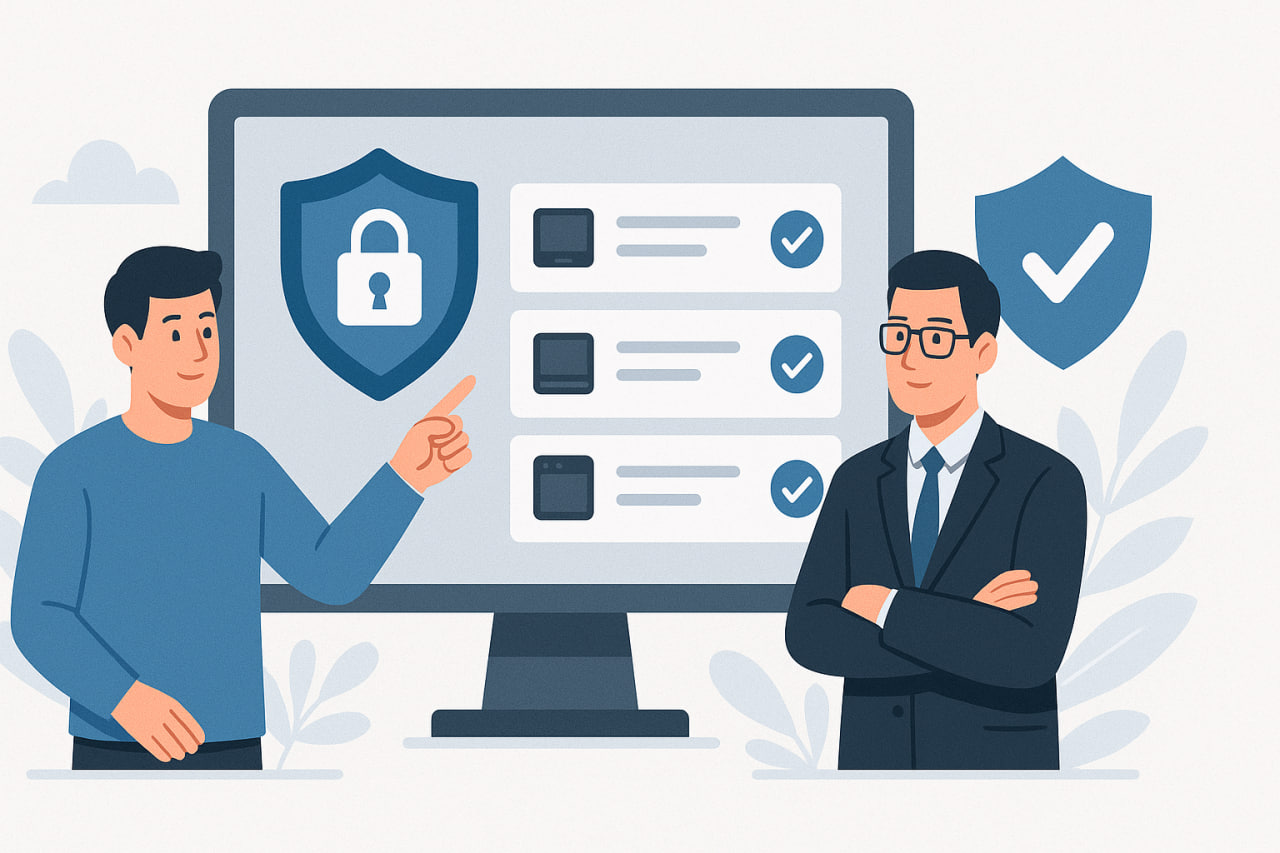API Key Security: Complete Guide for Crypto Traders

Contents
- Introduction
- What Are API Keys and Why Are They Important
- Main Security Threats to API Keys
- Practical Tips for Protecting API Keys
- Choosing Safe Software and Services
- Conclusion
Introduction
When traders use an exchange, they can connect special programs or trading bots. To do this, the exchange provides API keys. These are strings of characters that allow access to the account through external applications. These keys let the bot check the balance, open or close trades, and sometimes even withdraw funds.
API keys are essential for automating trading. For example, a trader can set up an algorithm that buys and sells assets based on specific conditions or use third-party apps for convenient analysis. Without API keys, such integration is impossible.
The Risks of Using API Keys
Although API keys provide convenience, they can also be dangerous. One of the main risks is losing funds. If a key falls into the wrong hands, the attacker can gain access to the account. This becomes even worse if the withdrawal function is enabled — the hacker can steal the money.
Unauthorized access is another risk. If the keys are stored unsafely, someone can use them to send commands to the exchange. Even if they can’t withdraw funds, they can ruin your trading.
This is why using API keys and understanding how to protect them is essential.
What Are API Keys and Why Are They Important

API keys are special codes that allow programs to interact with an exchange account without a login and password. Each key has two parts: a public key and a private key. The public key tells the system who is making the request, and the private key confirms that it’s you. If you compare it to a lock and key, the public key is like a name on the lock, and the private key is the key that opens it.
API keys are beneficial for traders who want to automate their work. With them, you can connect a trading bot. It will open trades based on the conditions you set in advance. You can also use third-party services for portfolio management and analysis. This saves time and helps you respond to market changes faster.
Through API, a trader can access various features. They can:
-
Check their balance
-
Open or close an order
-
Receive price and chart data
-
Manage trade history
However, these keys can be limited. For example, you can turn off the withdrawal function, which improves security. A good exchange always provides such settings. The trader chooses which actions are allowed for each API key.
Main Security Threats to API Keys
API keys give access to your exchange account. If they are stolen, you could lose money or control over your bots. That’s why it’s important to know the risks and how to avoid them.
Phishing, Malware, and Public Repositories
Phishing is when someone pretends to be a trusted service and asks you to enter your keys. For example, you might get an email that looks like it’s from the exchange, but the link inside leads to a fake site. If you enter your data there, the attacker can access your account.
Malware and spyware are also a threat. They can come from a bad website or file. Once on your computer, they can search for API keys and send them to the attacker.
Another common mistake is keeping keys in plain text, especially in public repositories. For example, if you write a script and upload it to GitHub but forget to remove the keys from the code, anyone can see and use them.
Unreliable Bots and Third-Party Services
Many bots and platforms promise easy trading. But not all of them are trustworthy. If you connect your keys to an unknown service, the owners might use your account for their benefit.
Some projects collect keys for later attacks or to copy your strategy. Free and poorly reviewed tools are hazardous. If you’re not sure about the safety of a service, it’s better not to use it at all.
Traffic Interception Through Unsecured Networks
Sometimes, people connect to the exchange using public Wi-Fi, such as in a café or airport. This can be dangerous. In such networks, attackers can intercept your data. If you use API keys without protection, they can be stolen during the connection.
To lower this risk, avoid trading on open networks. Use a secure connection instead. That way, your keys and all data will stay safe.
Protecting API keys isn’t complicated. The main thing is to follow a few simple rules and not rush into connecting them to every convenient tool.
Practical Tips for Protecting API Keys

API keys are like keys to a safe. You have to keep them secure. Below are simple steps that can help you avoid hacks and losing your funds.
Use IP Allowlist
Most exchanges let you create a list of trusted IP addresses. This means your API key will only work from specific devices or networks. Even if someone steals your key, they won’t be able to use it without the correct IP.
For example, add only your home IP if you trade from home. If you use a VPS, add that IP. This one step blocks most attacks right away.
Set Minimal Permissions
Don’t give your keys more power than they need. If you only analyse the market, set them to “read-only.” If you use a bot, allow only trading. Don’t enable withdrawals if you’re not going to use that function.
Limiting permissions helps even if someone breaks in. If they get a key that can’t withdraw funds, they won’t be able to steal your money.
Never Store Keys in Plain Text
Don’t leave your API keys in text files or on your desktop. That’s risky. Use a password manager instead. These tools encrypt your data and protect it from others.
Also, don’t save your keys in Google Docs or Google Colab or upload code with keys to public repositories like GitHub. Even if you forget to remove a key from your code, someone else could find it. This is one of the most common ways keys get stolen.
Use Two-Factor Authentication (2FA)
2FA adds a second layer of protection to your account. Even if someone learns your password, they still need a second code, for example, from Google Authenticator.
Enable 2FA for your exchange account and any services where you use API keys. This is a simple and strong defence against most hacks.
Rotate Keys Regularly
API keys shouldn’t last forever. If you haven’t used a key in a while, delete it. If someone might have seen your key, create a new one immediately.
It’s better to be safe than to try to get your money back later. Regularly rotating your keys is a good habit for any trader.
Choosing Safe Software and Services

When you start trading bots or connecting external services to your exchange, knowing who you trust with your API keys is essential. One bad choice could cause you to lose your funds. Below are tips to help you stay safe.
Check the Reputation of Bots and Platforms
Look for user reviews before installing a bot or working with a new platform. See how long the project has been around, whether it has a community, an official website, and support. Real services don’t try to hide who’s behind them.
Don’t download bots from forums or unknown websites. If no one talks about a bot and it only promises “100% profit,” it’s almost always a trap.
Use Only Official API Libraries
Many exchanges build their libraries to work with their API. These are tested and updated when something changes on the exchange. Using these is much safer than working with unknown code from someone without experience.
If your exchange doesn’t offer a library, look for ones the community maintains. Pay attention to how often they’re updated, how many people use them, and whether the code is open.
Avoid Suspicious Extensions and Apps
Some browser extensions or mobile apps claim to help with trading, but they may be spying on you or stealing your data. Once installed on your computer or phone, a malicious app can steal your key and send it to attackers.
So, only install what you need, and only from trusted sources. Always check what permissions an app asks for. If it wants access to everything for no apparent reason, that’s a red flag.
Conclusion
API keys give traders a lot of convenience. They make use of bots, track balances, and trade faster. But they also come with risks. If you don’t protect your keys, you could lose money, your strategy, or even full access to your account.
To avoid this, follow a few simple but effective rules:
-
Limit access by IP
-
Don’t give your keys more permissions than needed
-
Never store them in plain text
-
Enable two-factor authentication
-
Rotate and delete old or unused keys
-
Be careful about which services and tools you trust
Treat your API keys like a bank card — with care and attention. Security starts with your decisions—the more serious your approach, the lower the chance someone else will access your account.